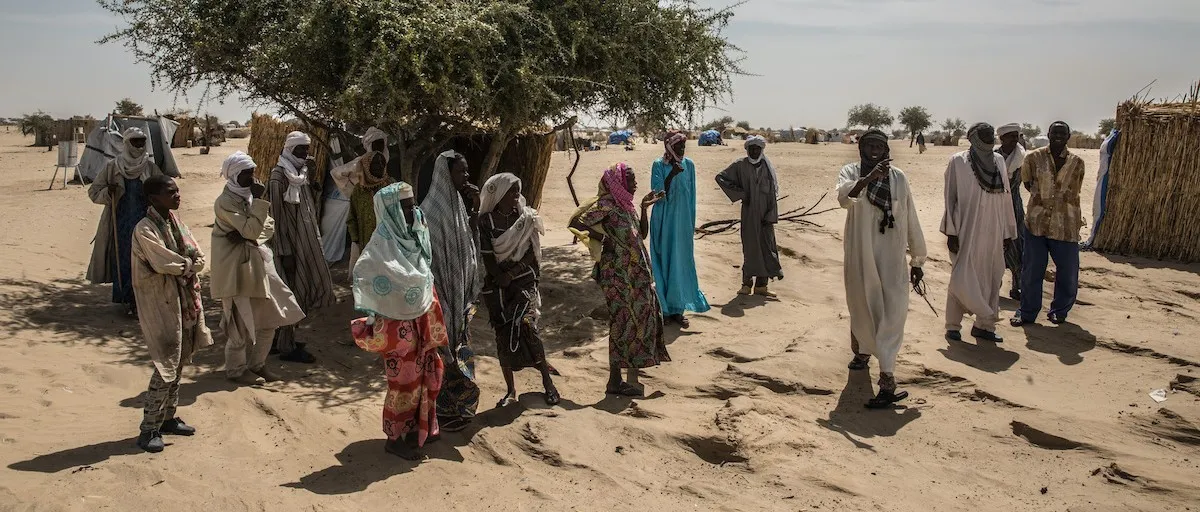
As Boko Haram factions grow in strength, solutions to the rapidly evolving crisis will become more complex in 2022.
It has been two decades since Mohammed Yusuf founded the group that became known as Boko Haram, and over a decade since its violent attacks reached the scale of an insurgency.
Numerous events during this time have caused the group to evolve, including its split in 2012 and spread throughout the Lake Chad Basin (LCB) region in 2013. These changes have had varying effects on the crisis and the governments’ ability to find lasting solutions.
Major developments in 2021 modified the conflict’s trajectory. These included the death of Abubakar Shekau (leader of Boko Haram faction JAS — Jama’at Ahl as-Sunnah lid-Da’wah wa’l-Jihad), the rise of Islamic State West Africa Province (ISWAP — another Boko Haram faction), and the resulting desertions of disaffected members. Analysing these trends helps anticipate how they will affect stabilisation efforts in LCB countries.
The death of Shekau, Yusuf’s successor, in May 2021 should have been a celebrated end to his reign of terror in the region. However, the involvement of the rival ISWAP faction only shifted the course of the insurgency.
The death of Shekau in May 2021 should have been a celebrated end to his reign of terror
ISWAP has since consolidated its presence in the LCB by taking over former JAS-controlled territories and absorbing JAS fighters. ISWAP has a stronger governance structure that includes community engagement and the leverage of local dynamics, with some support from the Islamic State of Iraq and Syria (ISIS). This makes it more strategic, better resourced, and more resilient than JAS in fulfilling its Islamic Caliphate agenda.
To address the violent and lengthy Boko Haram crisis, stakeholders have had to look at its root causes. This informed the push for stabilisation, which sees state and non-state actors working together to improve livelihoods, education, infrastructure, public services, governance and state-community relations.
ISWAP’s anti-state strategy that includes promoting itself as the preferred alternative to existing governments puts it in direct opposition to stabilisation efforts. In 2021 the group targeted state projects, kidnapping staff from the Borno State Ministry of Works who were supervising the construction of the road connecting Chibok and Damboa. They also ramped up attacks on security forces.
Maiduguri, considered one of the most secure cities in the LCB region, faces increasing attacks. Multiple blasts were apparently targeted at the visit of Nigeria’s President Muhammadu Buhari in December 2021. ISWAP has also attacked resettled communities, forcing displaced people to choose between living under the rule of violent extremists or facing secondary displacement.
ISWAP’s anti-state strategy puts it in direct opposition to stabilisation efforts in Lake Chad Basin
As ISWAP consolidates its influence in the region and adapts to military responses against it, more attacks will inevitably occur. And although it’s been weakened, JAS is trying to survive Shekau’s death with the emergence of new leaders.
Another trend triggered by Shekau’s death has been the mass exodus of former Boko Haram associates from the group. Managing these large numbers is an ongoing challenge for governments of the region, especially Nigeria and Cameroon. Close to 20 000 have left the group for various reasons, including men, women, children and families.
According to Institute for Security Studies research, rehabilitation facilities have been overwhelmed in some parts of Cameroon, leading to growing crime. LCB countries have inadequate resources and capacity for proper screening, profiling, prosecution, rehabilitation and reintegration of former Boko Haram associates. The lack of a standard regional methodology for these activities makes things even harder.
The issue of reintegration raises the dilemma of transitional justice and reconciliation. Despite consensus that lasting peace requires the involvement of communities in the justice and reintegration process, approaches to achieving this differ and must be carefully navigated to achieve stability.
ISWAP uses livelihoods as a crucial bargaining tool with communities — a trend that must be tackled in 2022. Extremists demand taxes from citizens in exchange for safe access to their farmlands and for creating markets to sell their goods. The task of bringing jobs into the region and securing farming, fishing and trading must be urgently attended to by those responsible for stabilisation.
Rebuilding the LCB region and its economies is not a task that governments can do on their own
A related question is how the private sector can help, despite the threat that the conflict poses to its operations. Rebuilding the LCB region and its economies is not a task that governments can do on their own. Incentivising the private sector to take a bigger role while finding ways to safeguard their activities are two challenges that must be handled carefully in 2022.
Recent trends also reveal other threats, such as the internationalisation of the LCB conflict. The activities of Islamic State-affiliated groups have increased in Africa, and there’s been an obvious push by ISIS to ‘remain and expand’ on the continent. Solutions will lie in joint regional efforts by affected countries along with the African Union and the Global Coalition Against Daesh. Reports that Boko Haram rival faction Ansaru has reconfirmed its allegiance to al-Qaeda adds to these concerns.
The LCB’s rapidly evolving crisis makes it difficult to decide on the best approaches to stabilising the region, measuring progress, and defining the desired end state. What stability will look like seems to get vaguer with each new development. The rise of ISWAP makes better state visibility and state-community relations even more urgent, especially considering the many non-state actors involved.
Despite a potentially tougher security environment in 2022, efforts need to be pragmatic and innovative. Those working to stabilise the region must collaborate, monitor conflict developments to stay ahead of the violent extremists, and adapt their responses as trends change.


